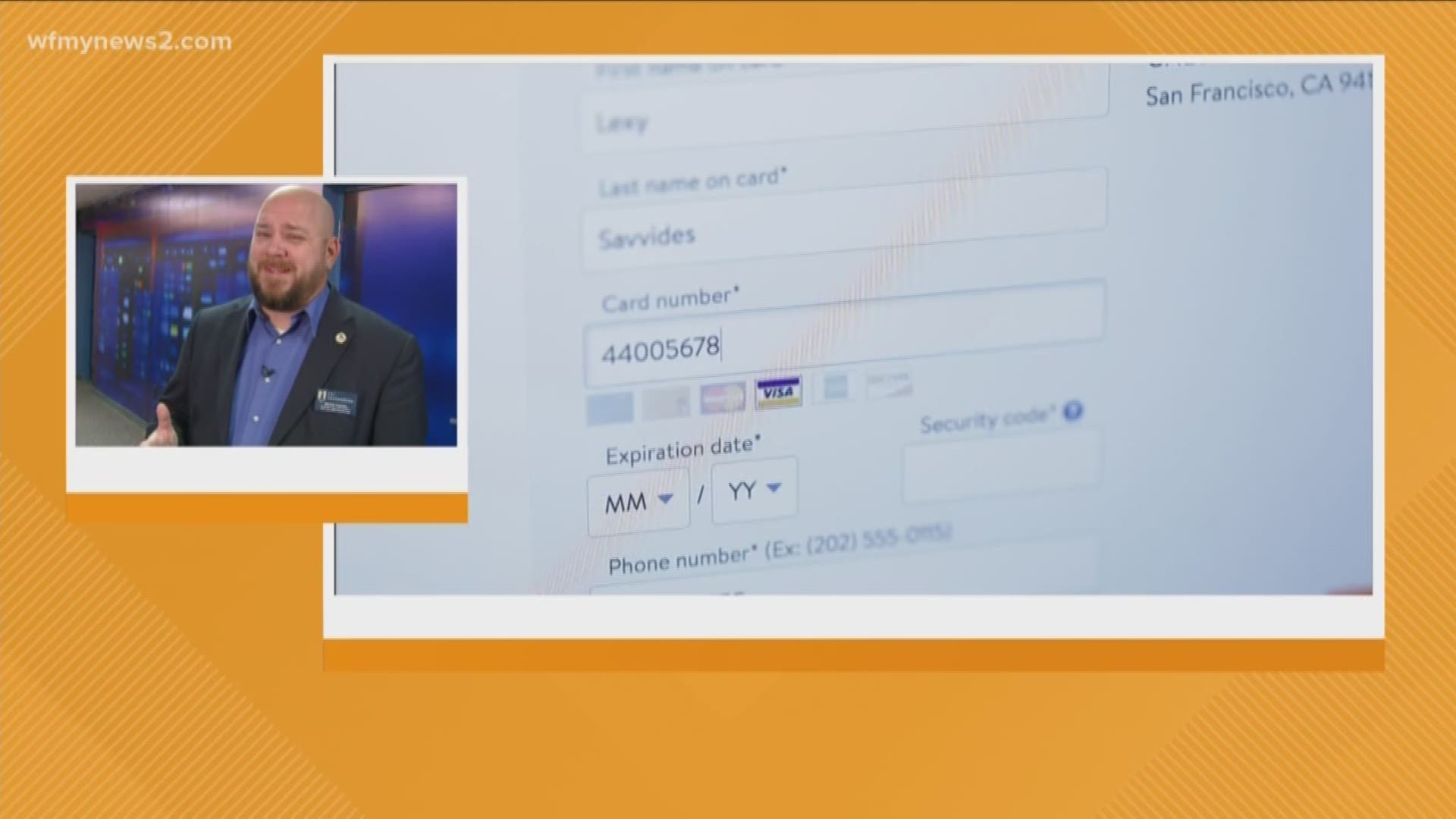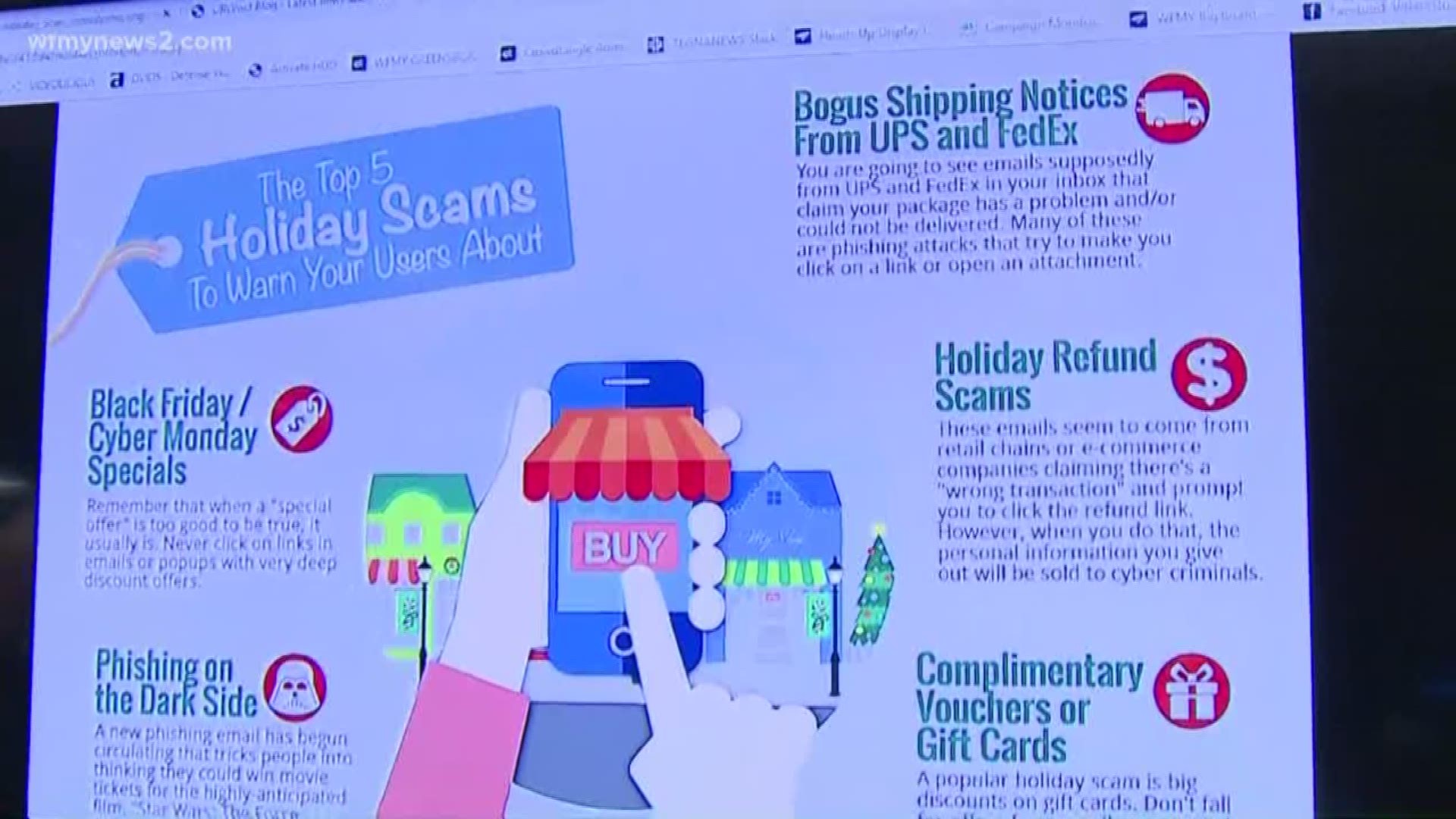GREENSBORO, N.C. — According to the National Retail Federation, 68 million people will be surfing the web for the best deals and steals on Cyber Monday.
But, before you "click" on a gotta-have-it item, you might want to consider making safety a top priority.
According to the FBI's Internet Crime Complaint Center (IC3), thousands of people become victims of holiday scams every year.
For that reason and more, federal authorities are warning online shoppers to always be wary of deals that seem too good to be true.
According to the FBI, the two most prevalent holiday scams are non-delivery and non-payment crimes.
In a non-delivery scam, a buyer pays for goods or services they find online, but those items are never received.
A non-payment scam involves goods or services being shipped, but the seller is never paid.
In 2018, the IC3 estimates that non-delivery and non-payment scams together affected more than 65,000 victims, causing almost $184 million in losses.
Federal authorities also want shoppers to be on the lookout for other similar scams over the holiday season, including auction and gift card fraud.
Auction fraud is described as "someone misrepresenting a product on an auction site.
Gift card fraud is described as "a seller asking you to pay with a pre-paid card."
The IC3 receives a large volume of complaints in the early months of the year, suggesting a correlation with the previous holiday season's shopping scams.
The FBI offers the following online shopping safety tips to help you look out for scammers during the holiday season or any other time of year:
- Always be wary of deals that seem too good to be true.
- Always get a tracking number for items purchased online so you can make sure they have been shipped and can follow the delivery process.
- Be wary of sellers who post an auction or advertisement as if they reside in the U.S., then respond to questions by stating they are out of the country on business, family emergency, or similar reasons.
- Avoid sellers who post an auction or advertisement under one name but ask that payment be sent to someone else.
- Consider canceling your purchase if a seller requests funds be wired directly to them via a money transfer company, pre-paid card, or bank-to-bank wire transfer. Money sent in these ways is virtually impossible to recover, with no recourse for the victim. Always remember that anyone who asks you to use one of these forms of payment might be a scammer. A credit card is generally the safest way to pay for an online purchase.
- Avoid sellers who act as authorized dealers or factory representatives of popular items in countries where there would be no such dealers.
- Verify the legitimacy of a buyer or seller before moving forward with a purchase. If you're using an online marketplace or auction website, check their feedback rating. Be wary of buyers and sellers with mostly unfavorable feedback ratings or no ratings at all.
- Avoid buyers who request their purchase be shipped using a certain method to avoid customs or taxes inside another country.
- Be suspect of any credit card purchases where the address of the cardholder does not match the shipping address. Always receive the cardholder's authorization before shipping any products.
- Always be wary of deals that seem too good to be true.
If you do become the victim of a holiday scam, contact your bank immediately. You should also inform your local law enforcement agency, and file a complaint with the IC3.



